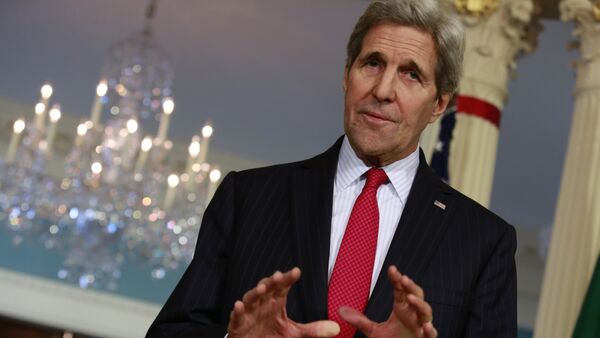In contrast to North Korea or Iran who get strong and fierce criticism from the US for detaining American citizens, the State Department turns a blind eye on violations of human rights in countries that it perceives as allies.
"The US could be doing so much more," says Amal Eldarat, a Libyan-American woman, whose father and brother are imprisoned in United Arab Emirates on allegations of "supporting armed terrorist groups without permission from the UAE government." The family said the charges stem from Eldarats' humanitarian support of Libyan anti-government groups during the uprising against Col. Muammar el-Qaddafi.
The US State Department said it had raised those complaints with the Emirati government, adding, "we continue to call for an expeditious resolution to this case via a fair and transparent legal process in accordance with local law."
According to Greg Craig, a defense attorney for the Eldarats, his clients were tortured and are not receiving the medical care they need.
State Department officials have said that they are closely following the trials in Egypt and the United Arab Emirates, and that they have raised concerns about the treatment of the Eldarats with senior Emirati officials.
Aya Hijazi, the Egyptian-American woman, has been detained in Egypt on accusations of human trafficking and sexually abusing the children. Ms. Hijazi led a nonprofit organization that she founded to care for Cairo's street children. Despite forensics showing that some children were abused, this did not happen while children were under the protection of Hijazi's organization.
Brian Shott, a spokesman for the United States Embassy in Cairo, said officials were closely following Ms. Hijazi's case and would continue to attend her court sessions.
Basel Hijazi, Ms. Hijazi's brother, said European diplomats in Cairo had shown more interest than their American counterparts, who at one point gave the Hijazis a switchboard number at the embassy to call for questions or concerns.
The two families were reluctant to take their cases to the public, afraid to inadvertently influence any negotiations in an unfavorable way. However, as time passes, the relatives became desperate and turned to media to press on the US Government.




